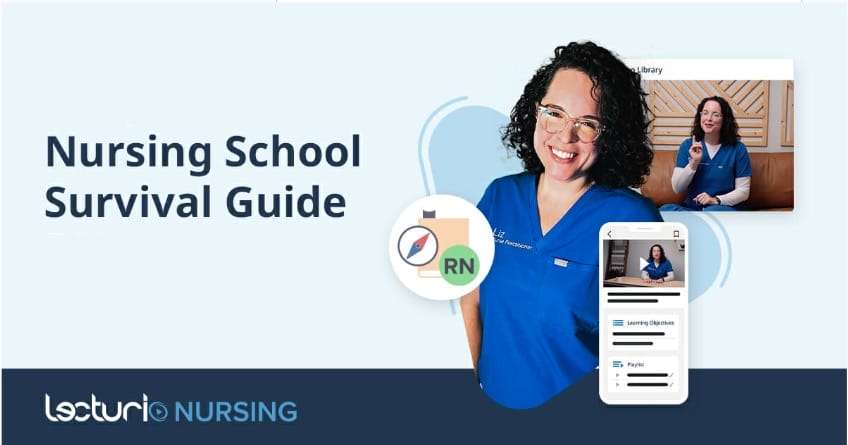Should you become a nurse?
Nurses are the heart of healthcare. They care for patients in their most vulnerable moments, and are the glue that holds together the healthcare team. Many are drawn to the profession because of its good reputation, or because they want to help others. As rewarding the nursing career can be, it comes with challenges and is not for everyone. Deciding whether a career in nursing is right for you is a difficult decision.
What do nurses do, really?
Nurses are the primary point of contact for patients and coordinate much of their day-to-day care. At its core, the role of a nurse is to assess and monitor patients’ health, administer medications, and provide care to support recovery. This involves performing diagnostic tests, assisting in medical procedures, and interpreting patient information to make critical healthcare decisions.
The role of a nurse extends beyond purely clinical tasks: They educate patients and their families on conditions, treatments, and preventive practices, and provide emotional support throughout a patient’s treatment.
Whether working in hospitals, clinics, or community settings, nurses manage a complex array of responsibilities, each critical to patient outcomes and overall healthcare delivery.
Registered nurses provide their care under the supervision of an advanced practice provider, physician or nurse manager, but also have a large amount of autonomous tasks, and often lead teams of nursing assistants and practical nurses. Depending on your desired level of autonomy and responsibility in patient care, make sure to look into other career paths for comparison before you decide.
What are the qualities of a good nurse, and do you need to have all of them?
Important qualities for nurses include:
- Empathy, compassion, patience, and integrity
- Effective stress management to tolerate high-pressure environments
- Strong communication skills and team work ability
- Attention to detail and thoroughness
- Physical stamina for being on your feet all day
- Problem-solving skills and a practical mindset
- Adaptability and curiosity for a constantly changing field
- Cultural competence when caring for a diverse patient population
All of these are important skills for nurses that will be demanded of you. However, remember that you don’t need to be perfect at these when you’re just getting started. Your nursing school journey will come with lots of growth and development of these skills alongside your clinical knowledge.
Is nursing worth it? (pros and cons)
Nursing can be incredibly rewarding. It allows you to make a significant positive impact on patients’ lives and well-being. Helping people and being there for them in their most vulnerable moments can give you a strong sense of purpose.
Nursing is also a very stable career: There always will be work for you; so nursing roles come with a high degree of job security. This becomes even more true with the increasing nursing shortage.
Last but not least, nursing is an incredibly varied field: You can choose from a huge number of nursing specializations, work places, and graduate school options. Travel nursing offers great flexibility and a sense of adventure and spontaneity that not many other jobs have. There is even a surprising amount of non-clinical career paths you can choose.
On the other hand, it is well-known that nursing can be very demanding. A lot of nursing work environments are fast-paced, high-pressure, and very stressful. Shift work is common, often requiring nurses to work nights, weekends, and holidays. Nurses might also be mandated to work overtime or be floated to different departments as needed, which can affect work-life balance. Managing a family in parallel to a nursing career is possible, but challenging.
If you’re drawn to a role that combines medical expertise with compassionate care and are prepared for its demanding nature, nursing could be a fulfilling career choice for you.
Related videos
How to choose a nursing program
LPN/LVN vs RN: What is the difference?
Nurses in the United States typically hold one of two licenses: a Licenced Practical Nurse (LPN), or a Registered Nurse (RN).
Becoming an RN takes longer than becoming an LPN (4+ years), but they typically get paid more than LPNs. RNs can do a larger number of tasks without supervision including procedures in wound care and inserting catheters.
LPN programs contain largely the same topics as registered nursing programs, but are significantly more affordable. Their significantly shorter duration means they go less in depth, which comes with a number of limitations to their autonomy performing various tasks. Some people use becoming an LPN as a stepping stone to an RN degree.
How to become a nurse: paths to RN
All roads lead to Rome, and a lot of ways lead to becoming a Registered Nurse. Here are the five main ways to become an RN:
- ADN programs (or “associate’s programs”):
- Very common
- Supposed to be 2 years long – but that does not include prerequisites, so add another 2 years!
- Relatively affordable
- BSN programs (bachelor of nursing):
- 4-year university
- More rigid schedule and more expensive than ADN
- The Bachelor’s degree can be a competitive advantage
- Accelerated BSN programs:
- For people with a previous degree in something else
- All prerequisites need to be covered before starting
- Last between 12 and 18 months
- MSN programs (master’s degree in nursing):
- Contain extra classes like leadership
- Suitable for people who have a bachelor’s and want to go into nursing
- Can take the NCLEX after to become an RN
- Diploma:
- Certification instead of college degree, but you still take the NCLEX for becoming an RN
- Used to be more common
- Bigger focus on the clinical setting than the classroom
- Note: Many hospitals require an ADN or BSN!
Choosing your dream nursing school
It is important to weigh your options carefully when determining where to go to nursing school. Cost of living, proximity to family, school reputation and NCLEX pass rate, and how much you like the area can all be important factors.
- The best nursing schools in Arizona
- The best nursing schools in Colorado
- The best nursing schools in Hawaii
- The best nursing schools in Texas
- The best nursing schools in California
Related videos
How to get into nursing school
The first hurdle: nursing prerequisites
Nursing prerequisites are classes you need to take prior to starting your nursing classes that will build on that knowledge. Many people underestimate how many prerequisites are needed: It is about the same amount of classes you will be taking in your actual nursing degree!
Tip: Integrated BSN programs incorporate your pre-reqs throughout.
Different programs have different prerequisite requirements, but some courses are needed almost everywhere, including:
- Biology
- Microbiology
- Chemistry
- Biochemistry
- Organic chemistry
- Nutrition
- Mathematics
- English writing
- Human anatomy
- Physiology
- Human development

Take Lecturio’s Online Course: Nursing Prerequisites
Cover all the foundational science knowledge you need for nursing school with a team of experienced educators.
Tip: Whichever classes you struggle with the most, don’t take them at the same time, and don’t push them to the end. Spread them out! Don’t take microbiology and anatomy at the same time either, since both require you to memorize a lot of material.
Tip: If you collect these courses over time, double-check if they expire. A lot of courses (e.g., statistics) are only valid for five years or so, or you have to retake them.
Tip: Community colleges are a great way to cover prerequisite courses cheaper and with more flexibility. However, be careful to check the courses transfer to your dream nursing school – not all of them do.
Nursing school entrance exams
Not all nursing schools require entrance exams (some waive them for a certain GPA), but the majority of schools in the United States require you to take either the HESI (Health Education Systems Inc.) or the TEAS (Test of Essential Academic Skills) exam before applying. Both of them test general knowledge you learned throughout high school, as well as basic math and science topics.
Tip: If you’re unsure which one you will need to take, prepare for the HESI. It is more comprehensive, so you will have covered everything for the TEAS, as well.
Tips for nursing school applications and interviews
Which nursing pre-reqs and entrance exams you need to do is often out of your hands, but your application is where you can get an advantage with thorough preparation and research.
Some general advice around your application:
- Look up the school’s mission statement on their website and align your traits, education, and experiences in your application with their values.
- Be an early bird: If you’re super early, you might even have time to do specific volunteer work your dream school would appreciate. Send out your requests for letters of recommendation early – people will procrastinate. Write your application essay early on and get people’s feedback – they may see strengths in you that are not apparent to yourself.
- Be honest and be yourself. Everyone is trying to be the perfect applicant and admissions committees see through superficial lies easily.
- If you don’t get accepted, but really want to pursue this path: Ask the admissions counselor for advice on how to improve. The nursing school system is competitive and overwhelming, so if you’re truly driven to nursing, try again!
Related videos
How to succeed in nursing school
How to prepare for nursing school
Nursing school has a reputation of being hard. And it is – one of the main reasons being, how busy it is. The good news is: Busy is fixable.
It’s never too early to establish beneficial habits that will help you not just survive but also thrive during nursing school.
- A planner is your best friend: Organize your semester schedule ahead of time to keep an overview at all times.
- Don’t try to study too much in advance – that’s what school is for. However, if you feel like you forgot your prerequisites, there’s no harm in reviewing those.
- Know what you’re getting into: While you shouldn’t stress about studying prematurely, it makes sense to have an overview of which classes you will have to take in nursing school, and gauge which ones might be harder or easier for you.
- Get your supplies ready (click here for a list of things every nursing student should have)
- Know your financial situation: Don’t overlook expenses and have a plan in place on how you are going to pay for nursing school.
Protect your health
Nursing school is hard and can take a toll on you. There are things you can do to take care of your health from the beginning to stay energetic, healthy, and happy throughout the stress:
- Acknowledge anxiety and find ways to alleviate it
- Maintain healthy relationships in and outside of nursing school
- Take care of your body, for example, by meal-prepping
- Get quality sleep
- Watch your school-work–life balance as much as you can
Working while in nursing school
Nursing school demands all your energy and focus, but we know not having a job while in nursing school is simply not an option for many people.
Here’s some tips how you can make it work:
- The job needs to fit around your school schedule, which might mean working nights and weekends (e.g., bartending or restaurant jobs).
- Per diem work in the healthcare setting gets you more useful experience while being flexible.
- Popular jobs for nursing students include being a nursing assistant in a hospital, or becoming a CNA.
- Ideally, your employer knows you’re a student and is open to giving you some more flexibility, for example around exams.
- In a flexible job, you can work less during the semester and take on more hours in semester breaks.
Related videos
Succeeding in nursing school clinicals
Build confidence in skills lab and sim lab
Skills lab involves learning skills like placing an NG tube, how to do a central line dressing change, or how to bathe a patient, not on live people but on mannequins and simulation patients in a lab environment. At the end of practicing a new skill, you will be tested on it in a skills check-off.
SIM lab has more advanced (you could also say, even creepier) mannequins than skills lab. Your professor remotely monitors you in SIM lab while you enact a realistic situation you may see in practice as a nurse, while taking on a specific role. Examples include mock code blues, therapeutic communication scenarios, or respiratory failure in a patient. A lot of students are wary of SIM lab because you don’t know exactly what you will be facing in advance – but that is what nursing is like in real life! Take it as a valuable learning opportunity to be ready for anything.
What are nursing school clinicals?
Clinical rotations are when you make the step from a classroom into a hospital environment, and start learning practical nursing skills with real patients. The goal of nursing clinicals is to introduce you to as many things as possible.
No nurse was ever able to save a life purely from knowing their textbooks by heart.
This is why all this theoretical knowledge is first practiced in a simulation lab, using more or less realistic dummies, robots, or your classmates. Clinical rotations will then help you bridge the next gap by giving you the chance to practice with real, living people. Throughout this time, you will rotate across various specialities. Will you have mastered all skills by the end? Of course not, but you will have a rough idea and feel able to handle things and practice more.
Things and tips to know before starting clinicals
- Ask for a tutorial on how to go through a patient’s chart early on.
- Save and group the more complicated questions that you want to ask your instructor. You may get better, more in-depth answers if you don’t ask them in stressful situations. Always ask why the nurse does things.
- Do not let yourself get bullied into being the tech. Not that there’s anything wrong with the role – but you need to learn the skills to be a nurse, too. Advocate for yourself to get a well-rounded experience.
- Make it a habit to say “yes” to all opportunities during clinicals!
One more thing: Nurses are often stressed and understaffed, and sometimes make it obvious they’re not thrilled to have to take care of a student on top of it all. Remember that this has nothing to do with you. Something that can help is to communicate to them your priorities what you want to learn, so they don’t feel like they have to teach you everything they do that day. You can also focus on watching how they prioritize and communicate, which are essential skills you can learn by observing.
Related videos
The NCLEX
What you need to know about the exam
The NCLEX (or, if you’re being fancy, the National Council for Licensure Examination) is the exam you take at the end of nursing school that allows you to become a licensed registered nurse. It is a country-wide exam administered by the National Council of the State Boards of Nursing (NCSBN).
There are 2 versions of the NCLEX: The NCLEX-RN and the NCLEX-PN, depending on if you’re becoming a registered nurse or a licensed practical nurse.
The NCLEX is supposed to measure your ability to safely provide patient care. It does so with various types of questions that test your knowledge and skills in different ways. The number of questions – and how hard they are – is different for everybody, as the exam dynamically adapts based on your performance while you’re taking it. The current number lies between 75 and 145, but this is subject to change (as everything about the NCLEX is): In 2023, the exam underwent a major restructuring that also came with the introduction of new question types and a tweak to the scoring system: partial-credit scoring.
How to prepare for the NCLEX
While it’s important to inform yourself early on about the eligibility criteria and the registration process, the biggest hurdle before the NCLEX is definitely the studying.
The key to success is having a solid plan.
- Before you start, take stock of your strengths and weaknesses to know where to focus more of your efforts.
- Know how much dedicated study time you have, and plan it out ahead of time.
- Follow your study schedule consistently.
- Look for a course, online or offline, that’s taught by experienced nursing educators that help you review.
- Use practice questions! Nothing prepares you for the NCLEX better than a realistic question bank.
How to survive test day
Everyone is terrified of test day. But remember: You have been preparing for this. You can do this. Being nervous likely can’t be avoided, but you can prepare a few things that can make your day a bit calmer:
- The NCLEX is taken at a testing facility. Check the location of the testing center beforehand, including the parking situation.
- Make sure you know what to bring and prepare everything the day before (don’t forget your ID – and snacks)
- Arrive well-rested (if you can – definitely don’t sabotage yourself by trying to cram the night before)
What if you fail the NCLEX?
Once you have taken the NCLEX, you typically won’t immediately know if you passed, which can be nerve-wracking – especially if you got the full number of questions. It can be tempting to follow questionable tricks to try and gauge your chances, but ultimately you will have to wait for the official information to come out. Try to take the time to relax, reconnect with your friends and family, and acknowledge the huge achievement that finishing nursing school and going through NCLEX test day already is.
If you do end up failing the NCLEX, pause and regroup. You’re not the first person this has happened to, and it is possible to come back from this and pass it on a new attempt.
Applying for your first nursing job + steps after the NCLEX
Congratulations, you’ve passed the NCLEX! It’s the moment you’ve been waiting for, but it comes with a number of tricky questions and tasks.
An often overlooked task you have now that you got your nursing license is maintaining it.
- Practice writing your nursing credentials correctly – you earned them!
- Know the rules of maintaining your nursing license
- If you are moving states, make sure you know the intricacies of compact nursing licenses and how to transfer your license.
Finding your first nursing job (especially if you don’t feel like you have enough experience yet) can be daunting. But remember: You passed nursing school. You proved you’re bright, motivated, and capable. If you don’t find a job in your dream field immediately, start with something else, gain experience, and go from there.
- Use your network (you do have one!) and know which questions to ask to identify red flags in nursing job interviews to steer you away from toxic work environments.
- Take advantage of resume templates – there’s affordable and good ones all over the internet that can save you a lot of time.
- Decide which environment you want to work in (hospital? nursing home?)
- Keep an open mind for more unconventional nursing jobs you can pursue as an RN
- Consider if a nursing externship is the right fit for you.
Graduate nursing degrees
Grad school is a great way to expand your career in nursing, but it is not the only way. Remember that schools gain a lot of money by encouraging you to jump right into grad school and will tell you it’s best to just go for it.
The truth is: It’s never too late, so for many people, waiting a little and just practicing for a while is more practical. The first years of practice are really intimidating, and grad school is a lot of work. You also may change your mind about what you are interested in. However, everyone is different!
Options for graduate programs include:
- Nurse Practitioner programs (FNP and AGNP being the most common)
- Certified registered nurse anesthetist (CRNA)
- Clinical nurse specialist (CNS)
- Midwife degrees
- Going into education, public health, nursing informatics, quality assurance, or administration
There are also doctoral degrees in nursing: A common misconception is thinking the DNP is a doctoral degree for the NP. In fact, there are several doctoral degrees you can get in nursing.
- PhD: largely focused on doing research and becoming an expert in a certain topic
- DNP: degree focus is actual nursing practice and can be nurse practitioner, CRNA midwife, educator, and other things
Related videos
Final thoughts
Whatever questions you have and whatever mistakes you make: You’re not the first nor the last person to do so. Becoming a nurse is a challenge with a steep learning curve in a complex education system. If this is the career that you would like to explore, don’t be discouraged by how complicated everything is. You can do it! Others have done it before.




